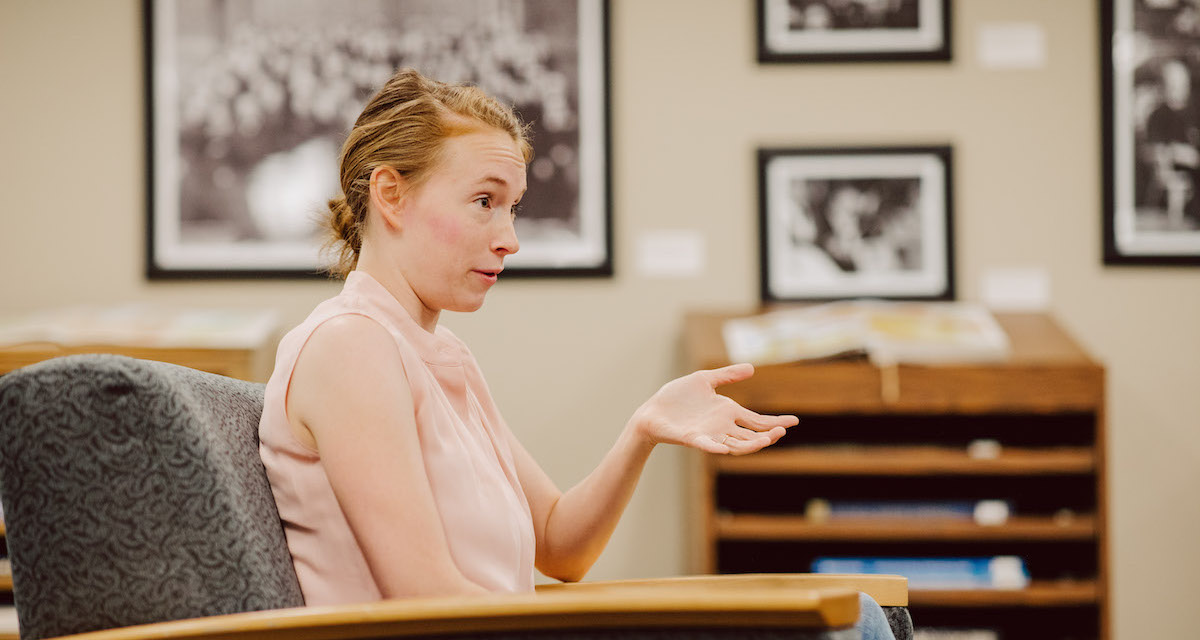Spiritual Transformation Through Physical Disability
A version of this article appears in the spring 2019 issue of STILLPOINT magazine under the title “Vocation as: Obedience.”
Hilary (Sherratt) Yancey’s longstanding interest in the philosophy of disability took on a new light when she gave birth to Jackson, a spunky boy with a number of disabilities. “There is a difference between something you find interesting and something that confronts you, that you can’t walk away from,” says the 2012 alumna.
It was at the 20-week ultrasound in 2015 that Jackson (Jack) was diagnosed with craniofacial microsomia. The set of conditions, related to the development of the face and skull, meant Jackson would be born missing his right eye and right external ear. He also had a cleft lip and palate and abnormalities of the right jaw. He would require extensive care.
Suddenly, Yancey’s life looked different from the sequential journey she had once envisioned—complete school, establish the dream career, find and marry the right man, then have children. Instead of course schedules, she lived by surgical schedules, attending doctors’ appointments instead of conferences. “When you live in the neonatal intensive care unit, you move to a different rhythm from the rest of the world,” she says.
The Baylor University Ph.D. candidate slowed down in her studies to care for her new son and grappled to make sense of what it meant to become a philosopher as the person she was also becoming as Jack’s mother. “Spiritually,” says Yancey, “this pressed me to both reexamine everything I had thought I understood about who God is and what God wants for us, and to also let a lot go undone.”
To process these thoughts and reflections, Yancey published a book Forgiving God (2018), a book that details her family’s journey, capturing the raw emotions. The more she sought answers in her faith, she says, the more Yancey found encouragement. “God asks you to be you in your calling, not someone else,” she says. “Whatever it means for me to be an academic or a philosopher, it means that I do it in the midst of being someone’s mom and someone’s wife.”
With a transformed perspective and restored hope, Yancey shifted the focus of studies. Her dissertation considers our common understanding of natural and artificial body parts, and our resulting views of disability: How does disability intersect with our ideas about what it means to live a flourishing life? How does it intersect with discrimination and social justice? But the questions were no longer just theoretical. “How was I going to talk to Jack about his body, and his life?” she asks. “How was I going to teach others to see him?”
Yancey came to terms with the fact that her career as an academic philosopher wouldn’t look the same as it might for others—it might take more time and she may not publish as many papers—but she could bring profound meaning to her work. “You wrestle with the angel that comes for you,” she says, “and this is mine.”
 The Bell
The Bell